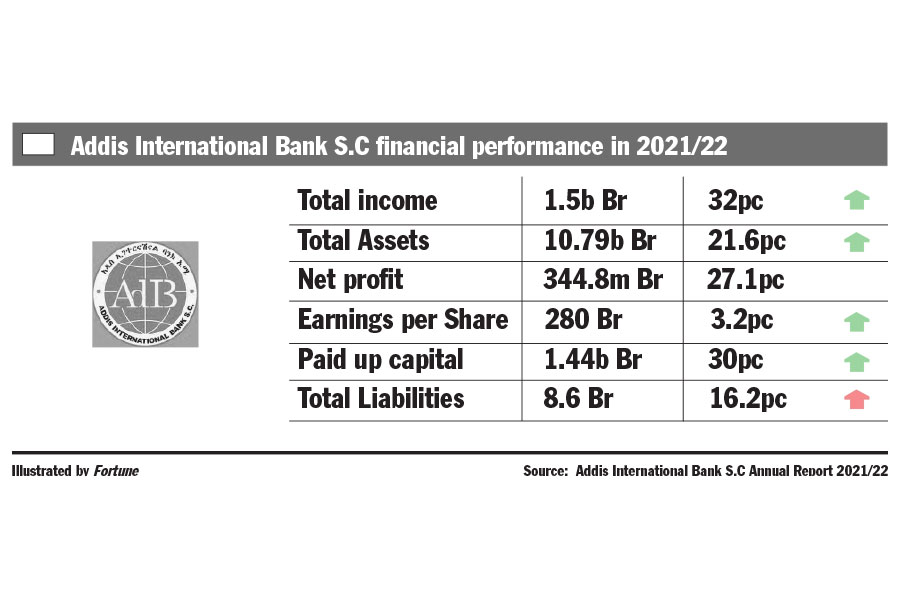
Viewpoints | Oct 23,2021
Nov 9 , 2024
By Birhanu Beshah
Ethiopia is entering its fifth cybersecurity month, marking a milestone in its digital journey toward digital adoption, which has immense rewards. However, it also presents evolving complexity and issues beyond protecting systems as the theme espouses the need for "infrastructure security for digital sovereignty."
As digital transformation reshapes how people, institutions, and societies function, Ethiopians should be keenly aware of this evolution. The federal government has positioned digital technology as a foundation of economic growth, after launching the ambitious policy for "Digital Ethiopia 2025.". The establishment of the Ethiopian Artificial Intelligence Institute (EAII) embodies this commitment to leading-edge technological advancements.
Over the past decade, Ethiopia has made noteworthy inroads in the digital realm. With over two-thirds of the population now accessing mobile coverage, the country is progressing toward enhanced connectivity. Key sectors, especially finance, are increasingly adopting digital solutions to boost efficiency and accessibility, while government offices are digitising public services.
Yet, this rapid digital shift is not without its risks.
A failure in any vital digital system could severely impact the country's socioeconomic configuration. The Information Network Security Administration (INSA) could safeguard digital infrastructures and be a critical defence against such vulnerabilities. The introduction of a digital ID project further demonstrates the dual purpose of reinforcing digital infrastructure while addressing security concerns. Protecting digital assets from cyber-attacks is crucial, but achieving digital sovereignty entails more than security measures.
Ethiopia’s heavy dependence on foreign expertise and technology introduces additional layers of vulnerability, raising important questions about control and self-reliance, especially in initiatives like the digital ID system and TeleBirr, its mobile money service.
While sovereignty often suggests independence, complete autonomy remains an elusive goal in our interconnected digital age. The dominance of tech giants such as Apple, Google, Amazon, Alibaba, Oracle, and Microsoft poses barriers for countries like Ethiopia seeking full control over their digital ecosystems. This calls for a candid assessment of Ethiopia's digital ecosystem beyond safeguarding digital sovereignty and carving out a pathway for technological advancement.
According to the Nobel laureate economist, Paul Krugman, the foundation of future development lies not in independence or interdependence, but in enabling effective systems of intra-dependence. Creating technology is one of these although realising it remains vital. The quest for national digital sovereignty demands a strategic approach to nurturing digital capabilities, cultivating domestic talent, investing in homegrown technologies, and potentially shaping the global digital sector.
While total independence may be unattainable, boosting local content and reducing reliance on foreign systems can enhance control and security. Current development signals a commitment to embracing digitalisation while acknowledging its limitations. Prioritising the development of its digital infrastructure and capabilities, Ethiopia can strive for a form of sovereignty that recognises the realities of a connected world.
PUBLISHED ON
Nov 09,2024 [ VOL
25 , NO
1280]


Viewpoints | Oct 23,2021

Fortune News | Mar 06,2021

My Opinion | Jan 01,2022

News Analysis | Apr 22,2023

Radar | May 27,2023

Radar | Apr 30,2024

My Opinion | Feb 18,2023

Life Matters | May 28,2022

Radar | May 12,2024

Viewpoints | Jul 22,2023

My Opinion | 131981 Views | Aug 14,2021

My Opinion | 128369 Views | Aug 21,2021

My Opinion | 126307 Views | Sep 10,2021

My Opinion | 123925 Views | Aug 07,2021

Dec 22 , 2024 . By TIZITA SHEWAFERAW
Charged with transforming colossal state-owned enterprises into modern and competitiv...

Aug 18 , 2024 . By AKSAH ITALO
Although predictable Yonas Zerihun's job in the ride-hailing service is not immune to...

Jul 28 , 2024 . By TIZITA SHEWAFERAW
Unhabitual, perhaps too many, Samuel Gebreyohannes, 38, used to occasionally enjoy a couple of beers at breakfast. However, he recently swit...

Jul 13 , 2024 . By AKSAH ITALO
Investors who rely on tractors, trucks, and field vehicles for commuting, transporting commodities, and f...

Jul 5 , 2025
Six years ago, Ethiopia was the darling of international liberal commentators. A year...

Jun 28 , 2025
Meseret Damtie, the assertive auditor general, has never been shy about naming names...

Jun 21 , 2025
A well-worn adage says, “Budget is not destiny, but it is direction.” Examining t...

Jun 14 , 2025
Yet again, the Horn of Africa is bracing for trouble. A region already frayed by wars...

Jul 6 , 2025 . By BEZAWIT HULUAGER
The federal legislature gave Prime Minister Abiy Ahmed (PhD) what he wanted: a 1.9 tr...

Jul 6 , 2025 . By YITBAREK GETACHEW
In a city rising skyward at breakneck speed, a reckoning has arrived. Authorities in...

Jul 6 , 2025 . By NAHOM AYELE
A landmark directive from the Ministry of Finance signals a paradigm shift in the cou...

Jul 6 , 2025 . By NAHOM AYELE
Awash Bank has announced plans to establish a dedicated investment banking subsidiary...